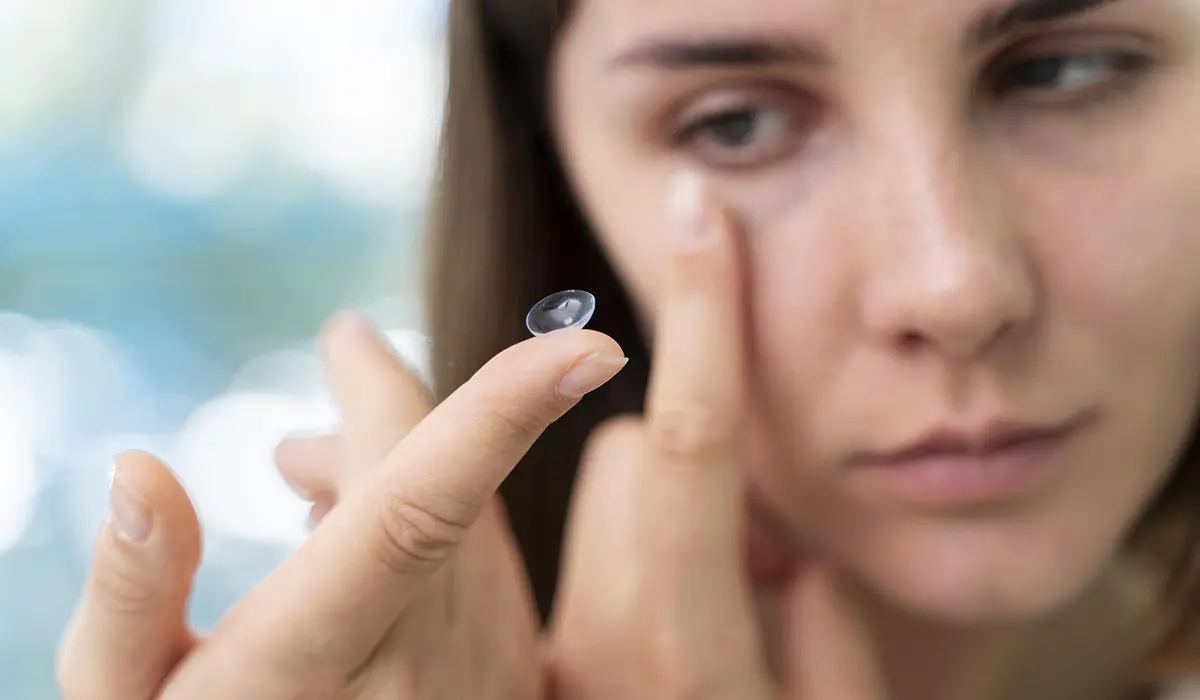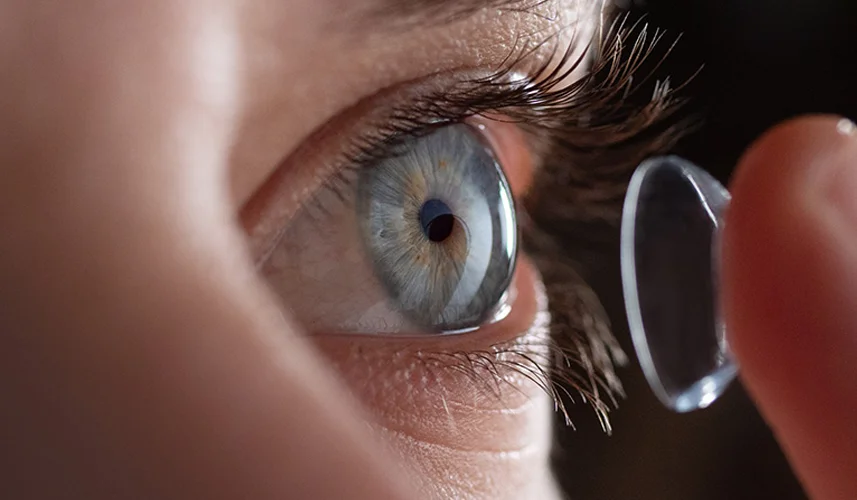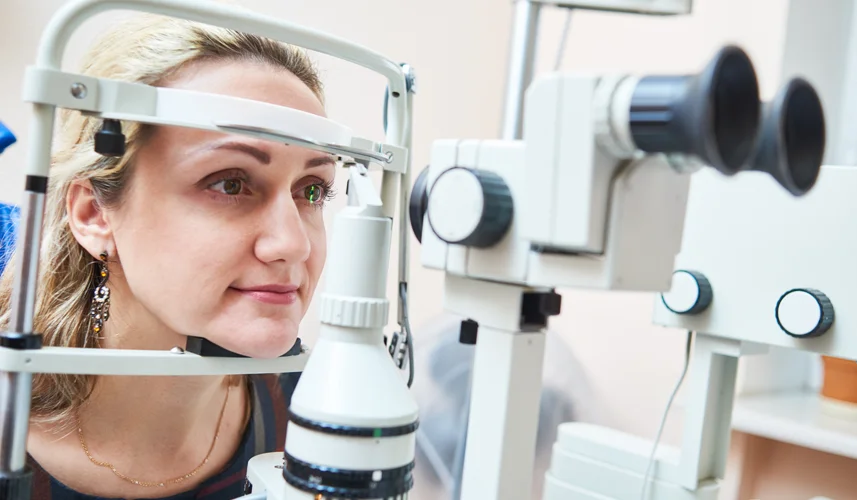
2025 Guide to Myopia Control: Effective Treatments and Prevention Tips
Myopia Control Methods for Lasting Clear Vision
With the rise in myopia, or nearsightedness, impacting millions worldwide, managing and preventing its progression has become more essential than ever. Myopia can lead to severe eye health risks, especially when left unchecked, making Myopia Control a critical strategy for individuals of all ages.
In this guide, we’ll discuss the most effective treatments and preventive measures, backed by science, to help readers understand how they can protect their vision and reduce myopia-related risks. Whether through lifestyle adjustments, innovative treatments, or regular check-ups, DeCarlo Optometry provides personalized eye care solutions for managing and preventing myopia progression.
Why Myopia Needs Control: Nearsighted vs. Farsighted Vision
Understanding the difference between nearsightedness (myopia) and farsightedness (hyperopia) can help clarify why myopia control is essential. Myopia causes distant objects to appear blurry, as light focuses in front of the retina due to an elongated eye shape. In contrast, farsighted individuals have difficulty with close-up tasks, as their shorter eye shape causes light to focus behind the retina.
Since myopia commonly begins in childhood and tends to worsen over time, early intervention is vital. Research shows that uncontrolled myopia can lead to severe eye health risks, including an increased likelihood of retinal detachment, glaucoma, and cataracts. Myopia Control targets the progression of nearsightedness specifically, helping to slow down eye elongation and preserve clear vision for the long term.
Key Treatments for Managing Myopia
Managing myopia effectively requires a combination of targeted treatments that help slow down eye elongation, one of the main causes of worsening myopia. The following treatment options offer flexibility and efficiency for children and adults alike.
1. Orthokeratology (Ortho-K): Correcting Vision While You Sleep
Orthokeratology (Ortho-K) is a unique, non-surgical treatment where patients wear custom-fitted lenses overnight. While sleeping, the lenses gently reshape the cornea, temporarily correcting vision. This allows individuals to experience clear daytime vision without glasses or contacts. Studies show that Ortho-K can slow myopia progression by up to 45% in children, especially those under 12, as it prevents the eye from lengthening too quickly—a primary factor in worsening myopia.
The specially designed lenses exert light pressure on the cornea, reshaping it to correct how light enters the eye. The effect typically lasts a day, making it ideal for children and adults who need clear vision for daily activities. Regular monitoring by an eye care professional ensures that the corneal reshaping is controlled and safe, with adjustments as needed.


2. Low-Dose Atropine Eye Drops: An Effective Solution for Children
Atropine eye drops in low doses are one of the most studied methods for slowing myopia in children. Applied once daily, low-dose atropine has been shown to slow myopia progression by approximately 50-60%. Unlike regular eye drops, these are not intended for dry eye or infection but specifically target the muscle strain that contributes to eye elongation in myopia.
Benefits and Considerations:
- Long-Term Effectiveness: Research demonstrates sustained myopia control over several years, particularly in children between 6 and 12.
- Mild Side Effects: Some children may experience mild light sensitivity or slight pupil dilation, though these are usually manageable.
- Convenience: Atropine drops are easy to apply and, with regular check-ups, can be a low-maintenance treatment option.
Parents should discuss potential side effects and monitor their child’s response to the treatment. Regular eye exams are crucial to adjust the dosage and maximize effectiveness as the child grows.
3. Multifocal Contact Lenses: Daytime Vision Correction with Myopia Control
Multifocal contact lenses are designed with multiple zones for near, intermediate, and distance vision, which helps control myopia progression. Unlike single-vision lenses, multifocal lenses allow the eye to relax, reducing the need to focus during close-up tasks like reading excessively. Studies have shown that multifocal lenses can reduce myopia progression by about 30-50%.
By balancing near and distant vision, these lenses help manage the eye’s natural tendency to grow longer as it focuses on close objects for extended periods. The lenses create peripheral defocus—a technique that reduces the stimulus for eye elongation. This balanced approach helps control eye growth and is effective for children and adults.
Developing Healthy Visual Habits for Prevention
Beyond treatments, healthy visual habits are essential in controlling myopia and preventing it from worsening. Small lifestyle changes can have a big impact, especially when started early.
Encouraging Outdoor Time to Lower Myopia Risk
Recent studies have found that spending time outdoors can lower the risk of developing myopia by up to 30%. Exposure to natural light helps regulate eye growth, reducing the risk of eye elongation associated with myopia. For children, the recommendation is at least one to two hours of outdoor activity daily.
Sunlight is more intense than indoor lighting, stimulating dopamine release in the retina. Dopamine is a natural signal to prevent excessive eye elongation, thus protecting against myopia. Activities like sports or walking provide varying focal points supporting healthy eye development.
Setting Good Reading and Study Habits
Establishing good reading and study habits can significantly impact eye health, particularly in children and teenagers. To prevent eye strain and potential myopia progression, it’s essential to maintain a healthy distance from reading materials—generally at least 14–16 inches away—and to take regular breaks during study sessions. Practices like the 20-20-20 rule—taking a 20-second break to look at something 20 feet away every 20 minutes—are simple yet effective ways to reduce visual stress. Creating a well-lit, comfortable reading environment further supports these habits, making developing and maintaining healthy visual practices easier.


Nutrition and Eye Health: Key Dietary Tips for Myopia Control
A healthy diet with the right nutrients can significantly impact eye health and myopia progression. Essential nutrients and a balanced diet work to protect retinal health, reduce oxidative stress, and support long-term eye function.
Essential Nutrients for Vision Support
A balanced diet is crucial in supporting eye health and may aid in managing myopia progression. Key nutrients beneficial to vision include:
Vitamin A: Supports retinal health, essential for low-light vision, and prevents night blindness.
Omega-3 Fatty Acids: Found in fish and nuts, these fatty acids help maintain the retina’s structure and reduce symptoms of dry eyes.
Lutein and Zeaxanthin: Antioxidants present in leafy greens like spinach and kale protect the retina from oxidative stress and harmful light exposure, which can impact visual clarity.
Eye-Healthy Foods to Include
Incorporating nutrient-rich foods into daily meals can strengthen eye health and potentially slow the impact of myopia. Leafy greens like spinach and kale provide ample lutein and zeaxanthin, while fatty fish like salmon and tuna offer omega-3s supporting retinal function. Brightly colored vegetables like carrots and bell peppers are excellent sources of vitamin A. Simple additions like a spinach smoothie, a weekly fish meal, or snacking on carrots can boost nutrient intake for better vision health.
Staying Hydrated to Maintain Eye Comfort
Hydration is another essential aspect of eye health, particularly for myopic individuals. Proper hydration helps maintain tear production, ensuring the eyes stay lubricated and comfortable. This is especially helpful for individuals prone to dry eye symptoms, as staying hydrated can alleviate discomfort and reduce strain. Incorporating enough water and hydrating foods, such as cucumbers and watermelon, into your daily routine can make a noticeable difference in eye comfort and visual performance.


The Importance of Regular Eye Exams in Myopia Prevention
Regular eye exams are critical in managing myopia, as they allow for the early detection of vision changes and the development of personalized treatment plans. Early intervention can help control rapid myopia progression in children, while continuous monitoring benefits adults.
Suggested Exam Frequency
The American Optometric Association recommends the following:
Children: Annual exams, especially for those with a family history of myopia or noticeable vision changes.
Teenagers and Adults: Yearly or biennial exams, depending on individual needs and risk factors.
Regular eye exams ensure that any progression is detected early and that treatment plans can be adjusted as needed.
Role of Advanced Diagnostic Tools
Technologies like the Topcon Maestro retinal scanner offer advanced imaging that helps detect subtle changes in eye health, particularly related to myopia progression. This technology provides detailed retina, cornea, and optic nerve images, allowing eye care professionals to track myopia accurately. These tools offer essential data for customizing Myopia Control strategies and tracking progress over time.
The Path Forward with Myopia Control for Healthier Vision
Managing myopia effectively requires a proactive approach that combines targeted treatments, healthy lifestyle habits, and regular eye exams. By considering options such as Ortho-K lenses, atropine drops, and multifocal contact lenses, individuals can take control of their vision health and reduce the risk of complications associated with myopia progression. At DeCarlo Optometry, we offer comprehensive services to help you maintain clear vision and preserve eye health for the future.
To learn more about the range of myopia control options available, visit our services page and see what our patients have to say on our client testimonials page. If you’re a new patient, you can get started easily by filling out our new patient form. Check out our FAQ page for common questions about our approach and services.
Take the next step in managing your myopia by scheduling an appointment or calling us at (714) 996-1136. We look forward to partnering with you on your journey to a healthier vision.
